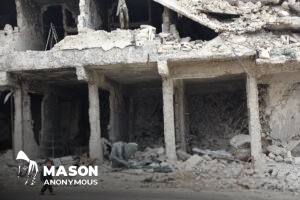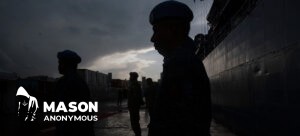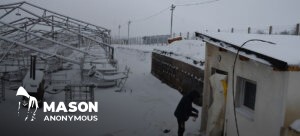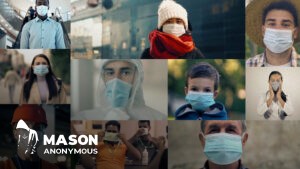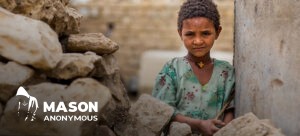
IOM/Abdullah Al Mashrif
The UN’s International Organization for Migration (IOM) is supporting medical care for Rohingya refugees in Bangladesh.
“We fled from home to save our lives, to escape war, and now we are faced with this new coronavirus”, said Rozhan, an Iraqi refugee who made a long and arduous journey to the European country of Bosnia-Herzegovina, with her husband, Ibrahim, and their three children. En route, the family dealt with being stopped, searched and detained, as well as cold and hazardous winter weather.
By April they were sheltering in a camp run by the UN migration agency (IOM), where they became aware of coronavirus. “Everyone was talking about it, and there were posters explaining how we should protect ourselves.”
IOM worked hard to prevent the spread of COVID-19 among people in its centres, installing sanitizer stations, educating staff and residents about safety, and closing community kitchens, to avoid large gatherings. Despite the fresh disruption to their lives, Rozhan and her family said that they understood why the new measures are necessary. “We are safe here”, she said.
Sounding the alarm

WFP/Falume Bachir
The World Food Programme (WFP) is working to reach displaced people who are facing crisis food insecurity levels in Cabo Delgado, Mozambique.
However, safety and hygiene have been harder to maintain in other camps, particularly in developing countries. In April, the UN sounded the alarm over the fate of refugees, migrants and other displaced people during the pandemic, warning that high-density camps could be the cause of mass COVID infections.
A statement released jointly by prominent UN agencies, including IOM and the UN refugee agency UNHCR, noted that many migrants live in overcrowded facilities, settlements, makeshift shelters or reception centres, where they lack adequate access to health services, clean water and sanitation.
Particular concern was expressed for refugees and migrants held in detention centres, including migrant children and their families, as well as those detained without a sufficient legal basis. “Considering the lethal consequences, a COVID-19 outbreak would have, they should be released without delay”, the statement reads. “This disease can be controlled only if there is an inclusive approach which protects every individual’s rights to life and health”.
Stranded

UNDP India/Dhiraj Singh
A migrant labourer in India holds a photo of his mother who was killed in a road accident as they returned home during the COVID-19 pandemic.
In May, IOM announced that teams from the agency were providing support to migrants in the desert regions of west, central, and eastern Africa, after they had either been deported without due process, or abandoned by smugglers – just one example of groups of migrants who found themselves stranded, as restrictions on movement began to bite. Many thousands were affected, all over the world, often blocked in border areas, without access to healthcare.
In India, huge numbers of migrant workers had their lives upended in April, when they were forced to leave the cities where they worked at just a few hours’ notice. Reports and images also emerged of police officers apparently beating people, including migrants, with batons, for breaking quarantine rules and allegedly spraying some on the road, with disinfectant.
Lacking jobs and money, and with public transportation shut down, hundreds of thousands were forced to trek hundreds of miles back to their home villages, some dying on the journey. Their desperate situation prompted UN human rights chief, Ms. Bachelet to call for authorities to respect the safety and rights of migrants when applying lockdown measures.
Targeted by organized crime

PAHO/Victor Sanchez
The UN’s Pan American Health Organization has supported the fight against the virus in Central America.
Following the imposition of COVID-related restrictions in Honduras, El Salvador and Guatemala, a rise in extortion, drug trafficking and sexual and gender-based violence was recorded by the UN refugee agency, UNHCR, in May.
In 2019, violence in the region had forced some 720,000 people to flee their homes, although almost half of them remain displaced within their own country. As the pandemic took hold in Central America, organized criminal groups began exploiting lockdown measures to strengthen their grip, using forced disappearances, murders, and death threats, to force the local population to submit.
A UNHCR spokesperson said that movement restrictions were making it harder for those that need help and protection to obtain it, while those that needed to flee for their lives, faced increased hurdles in seeking safety.
‘An outsized role on the frontlines’

© Hassan Akkad
Hassan Akkad, a BAFTA-winning filmmaker and health worker from Syria, now living in the United Kingdom.
At the end of what has been a particularly grim year for those forced to leave their homes, countries and families, International Migrants Day, celebrated on 18 December, was an opportunity to highlight the positive contribution that migrants and refugees make to societies, everywhere.
Hassan Akkad, an award-winning Syrian film-maker and refugee, has been hailed for the contribution he has made to his host country, the United Kingdom. Living in East London during the pandemic, he decided to help out by becoming a cleaner at his local hospital.
“It felt like a direct way that I could contribute to the wellbeing of my fellow Londoners”, he said. “It’s where I would go myself if I, or my partner, or the families on my road, got ill. It was my honour to contribute in some small way. The people I met there are, without a doubt, some of the most humble, hard-working, dedicated human beings I’ve ever met in my life. They come from all corners of the world – Ghana, Italy, Poland, the Caribbean, Spain, Iran”.
“Migrants have played an outsized role on the frontlines of responding to the crisis, from caring for the sick and elderly to ensuring food supplies during lockdowns”, said UN chief António Guterres on International Migrants Day. “Just as migrants are integral to our societies, they should remain central to our recovery”.

